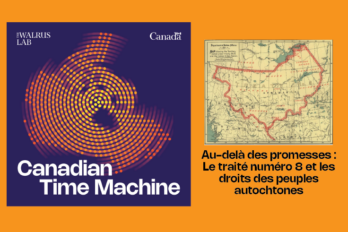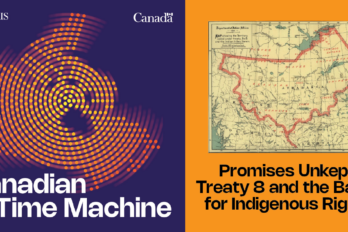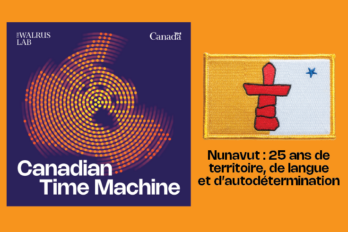HOST: The climate crisis is a global issue and requires a coordinated effort from everyone. But the people who will be most impacted by this crisis are often excluded from conversations on climate change: our youth. Naila Moloo believes that youth need to be involved in climate change discussions and in developing solutions.
Welcome to the Conversation Piece.
NAILA MOLOO: Hi, everybody. I’m Naila and I’m a 15 year old, really interested in sustainability currently working on a few projects at the intersection of climate and exponential technologies. I think I first got very interested in climate when I was in grade five. This was my first big point point of exposure. And we did a very typical grade five energy project where people were assigned different energy sources. And I looked into geothermal energy. And this was the first time that I realised how pressing climate change was and just how detrimental our global consumption of fossil fuels was. It was really scary to hear about because not only was climate change affecting the environment, not only is it affecting the environment, but also the economy and our society and everything. And so from there, I knew that I was interested in this space and I was staying up to date with the latest news, but it was towards the end of grade eight that I started noticing a lot more solar panels being put up.
And so when I was driving to school or to the mall, I was seeing a lot more solar panels on roofs and in fields. And this was very exciting to me because the, the news was blowing up with climate change. And so I was a excited because I thought we were finally making this transition, but then when I dug it into the statistics a little bit, I saw that solar energy only made out 3% of our global electricity generation. And that was super disappointing. So I started looking into why this may be, and I noticed this issue of accessibility with solar panels, because again, you really only do see them on roofs or in fields. But I started thinking about, you know, what, if we could have a solar panel on a window or on a car or on a phone screen, what if we could have transparent and flexible solar panels?
I started researching this prospect a little bit and it started with some very basic research on how solar panels worked and then digging into scientific literature. And from there, um, I started cropping this idea, but I also knew that I was just this 14 year old that I’d been researching this for a few months. And there were people out there with way more experience than me years and years of experience. It was a little bit in intimidating, but then I realised that, you know, why not just reach out to them? And so I got on LinkedIn and I would just reach out to a bunch of people like the CEOs and CTOs at sustainable energy companies. And I would ask them for a 15 minute call just to get feedback on my ideas. And from there, not only did I start to have this, but it was validated by experts in the field.
And so that’s one product that I’m working on this transparent and flexible solar panel, but I kind of took that framework of doing research and networking, just following my curiosity a little bit. And I applied to another really big world problem today, which is plastic pollution. And we all know that plastics are an enormous problem, but I started looking at solutions to plastic pollution. And one of these solutions is bioplastic sticks. Bioplastics are essentially bio based versions of plastics today. So our plastics come from coal and oil and other fossil fuels, but bioplastics come from crops like corn and sugar cane and potatoes. So it’s a lot better than the status quo. But I also notice as problem that if we’re using a bunch of crops that humans need to consume, especially with climate change, and we’re putting these towards materials, then you know, what about the people who need to eat these crops?
So I started researching second generation aquatic feeds stocks, which are crops that grow in water and that humans don’t consume. And I came across duck in my research. And again, well, that’s a very strange setting species, but it’s essentially just a very cool second generation aquatic feed stock. And I started reaching out to people. Once again, I reached out to the CEO of this company called pond bomb materials, and I started working with them over this summer. And so I’m still working with them. They’re based in Denmark and I’ve been doing some experimentation in a local university lab, but these are just a few projects that I’m working on right now. And I think that it’s so important that we’re having this conversation because youth do need to be involved in this discussion about climate change. If we think about it, the next generation is going to be the most impacted by this. And so makes sense that they’re also going to be the most integral with helping craft these innovative solutions to combat this crisis. Thank you so much. And I’m excited for the panel to follow.
HOST: Naila Moloo is an Innovator at The Knowledge Society. She spoke at The Walrus Talks at Home: Youth and the Climate Crisis in March 2022. And she’s just one of the over 800 fantastic Canadians who have wheeled, walked, and webcammed onto the stage at The Walrus Talks.




